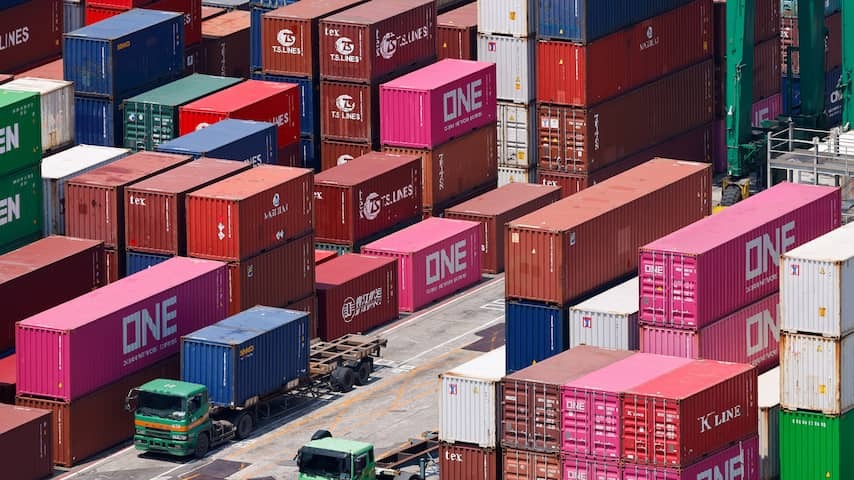
Americans who want to order a European product will be more expensive from today. The import duties of 10 to 50 percent that Trump previously announced for many trading partners of the US, came into effect in the night from Wednesday to Thursday.
“Billions of dollars are now flowing into the United States of America,” American President Donald Trump wrote on his platform Truth Social on Thursday. For most products from the EU, a rate of 15 percent applies. Steel and aluminum are taxed more heavily with a levy of 50 percent.
In the Netherlands, Tata Steel, among others, will experience many brands of those higher import tariffs for steel. The company had previously stated that it wants to become less dependent on the US due to the high import duties. For example, Tata is trying to sell more steel in the Middle East and Latin America.
Trump has imposed the levies because he thinks they are beneficial to the American economy. He wants Americans to buy products from their own country more often and that foreign companies move their factories to the US in order to create jobs. According to the president, other countries have benefited from the US by exporting many goods to the country.
Before Trump announced higher rates, a minimum levy of 10 percent applied to many countries. That rate remains in effect for the United Kingdom, but Brazil, for example, has to deal with rates of 50 percent. India gets 25 percent (although that will increase to 50 percent per August 27) and a levy of 39 percent applies to Switzerland.
In total, about seventy countries will now face the higher levies from the US. A few days after Trump announced the higher import duties in April, he came up with a levy break of ninety days. This was partly because financial markets did not react positively to the policy. For example, share prices fell and interest rates on government bonds rose, which is very unfavorable for the American government.
The break was needed to conclude new trade deals. That was successful with the United Kingdom and with the EU, among others.
No new deal has yet been made with two important trading partners, China and Mexico, on Thursday. Discussions with those countries are still ongoing.
How do import duties work exactly?
Import duties are a type of tax. Companies from the US that buy products from, for example, the Netherlands, currently have to pay a levy of 10 percent to the American government. Even more for some goods. There is a good chance that many companies will pass on that higher tax in their sales prices, which means that Dutch products will be more expensive in American stores. The idea is that Americans will then buy goods from the US more often.